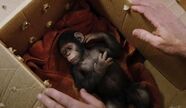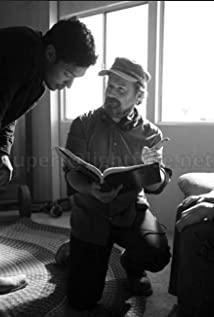The story of "Rise of the Ball of the Apes" is not complicated. The female orangutan who underwent genetic experiments left behind a baby orangutan before her death, and was adopted by genetic scientist Will and named Caesar. Then he discovered that Caesar not only could understand complicated human instructions and began to have his own ideas, but he also established a father-son relationship with Caesar. After accidentally injuring humans, Caesar was sent to a nursing home, and also began an uprising journey in which the orangutans jointly escaped from prison and united against humans. After watching the film, I believe there must be many fans who are like me who are sighed by the wonderful special effects and have been fanned by Caesars at the same time. Every step of Caesar’s anthropomorphic growth process is amazing. When he was a child, his eyes were as pitiful and cute as a cartoon star; in the nursing home, when he was separated from Will, he knocked on the glass in confusion, his eyes showed panic and helplessness. It is even more distressing. It even draws the shape of the window in the house with chalk on the wall. It witnesses human abuse and oppression of orangutans, from forbearance to anger, and finally, it is full of anger and shouts "No" to the humans who abuse it. , The expression of the humiliated self-esteem and gloomy and deep look is full of domineering, which makes people excited, and the leadership temperament shown on the road of the uprising is also convincing. The last sentence "Caesar is home" is even more teary. Of course, in addition to special effects, the problem of social equality metaphorized in the film is also worthy of human consideration.
View more about Rise of the Planet of the Apes reviews











